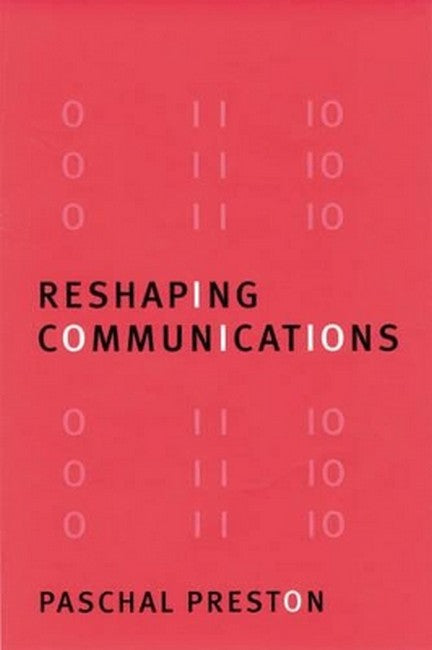Paschal Preston holds a research professorship in the School of Communications in Dublin City University. Paschal Preston is the founding director of the COMTEC research unit. Founded in 1991, COMTEC was one of the first social science research centres in the Irish university sector. COMTEC now has a distinguished 20-year record of successful collaborative and multi-country research projects. For more on COMTEC, click here. Paschal Preston is also a member of the Society, Information and Media (SIM) research centre. SIM was established in 2005 to embrace the broad research interests of staff in the School of Communication, including those engaged in media practice as well as academic research on media production, policy and consumption issues.
Request Academic Copy
Please copy the ISBN for submitting review copy form
Description
PART ONE: INTRODUCTION AND OVERVIEW Information Superhighways or Super-Hypeways PART TWO: COMPETING THEORIES OF THE CONTEMPORARY Third Wave Visions Technology as Social Transformer An Archeology of Imformation (Sector) Matters 'Information Society' Theories Culture and Information Postmodernisms and the Public Sphere PART THREE: MAPPING A NEW MILLENNIUM AND MULTIMEDIA ORDER Changes, Continuities and Cycles Towards a More Realist(ic) Theory The 'Atoms and Bits' of Informational Capitalism Polarities New Modes of Work, Consumption and State Regimes 'Content Is King'? New Media and 'Mature' Media Innovations Information as New Frontier Commofication and Consumption Stakes PART FOUR: ALTERNATIVE PROSPECTS AND POSSIBILITIES Beyond Technological Fetishism Towards a New Social and Media Order @Y2K+
`This is a stimulating, well argued book on an important contemporary subject and based, as is rare in this field, on up-to-date empirical data' - Nicholas Garnham, University of Westminster "Given the controversies and discursive excesses surrounding the (new) media, a pragmatic voice was long overdue. Reshaping Communications definitely fits in this slot in the discursive universe surrounding new and mature media and communications. . . . Passionately and persuasively argued, the book presents not only a sobering voice in the midst of either excessively eulogizing or apocalyptic ones; it furthermore moves in the direction of making concrete proposals for policy changes that address pressing issues, and initiates a debate on information, technology, communication, and questions social justice." * Communications: The European Journal of Communication Research *

